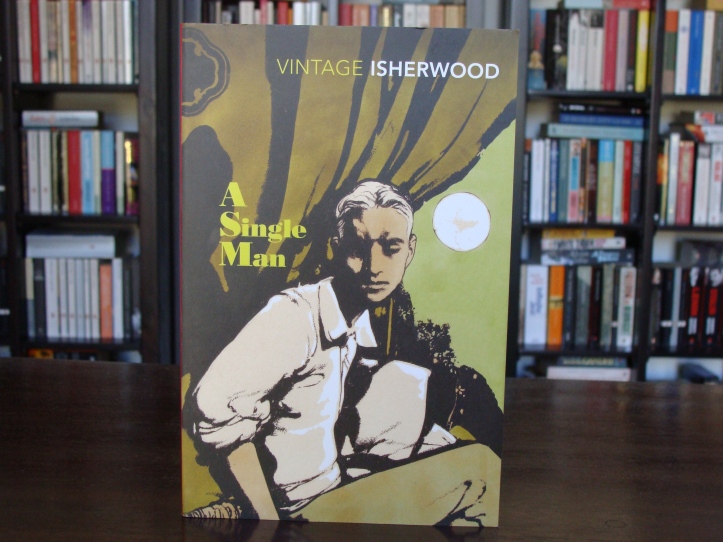A Single Man
by Christopher Isherwood
[A Review]
Christopher Isherwood’s A Single Man is an elegant little novel that evokes much emotion through universal themes and the tragedy of those who are not free to express them.

A Single Man covers a day in the life of George, a middle-aged literature professor and an Englishman, living in California in the early 60’s. George’s partner, Jim, has recently died suddenly in a car accident and George is still in an early stage of coming to terms with it. Though not in shock or collapsing with grief, he tries to deflect his feelings by sticking to his daily routine as best he can.
Isherwood takes us through George’s day as he slovenly rises in the morning, drives to work, debates his students in class, before having dinner at the home of a friend, who is also dealing with loss. After drinking a little too much, he dips into a local bar where bumps into a student. After some late night drunken, naked, swimming and some flirtatious conversation back at his house, the drink takes over and George wakes up the next day having to face life again.
Try as he might, George can’t escape the fact that the loss of Jim is affecting him. It shows with his sudden bursts of anger, something Jim was able to subdue in him; when he loses track in his conversations, like he is really talking about something else; or his increasing distaste for the company of others, not to mention how easily he drank too much this day and tore his clothes off on a beach to swim with a student.
When first published in the early 60’s, this novel was hailed as an ‘instant classic’, if there is such a thing, but it was also shocking as a frank depiction of a day in the life of a gay man. Clearly deflecting his pain, George has not even told many people that Jim is dead. That would require him to make explicit what Jim was to him, something that was just not done back then. Respecting one’s privacy meant that, though everyone knows, no one talks about it to your face. The universality of grief, and the impossibility of someone like George being allowed to express it, is a central theme of the novel.
The novel has some wonderful poetic touches. I especially like the passage where George spies two men playing tennis on his way to his class. One, though smaller, is “lithe, muscular; quick and graceful on his feet” and made for the game, while the other, though beautiful, “nobly made” with a classical body is doomed to lose – “the rules of the game inhibit it from functioning”.
“And won’t this keep happening to him all through his life? Won’t he keep getting himself involved in the wrong kind of game, the kind of game he was never born to play, against an opponent who is quick and clever and merciless?”
I also love the debate George has with his students concerning a work of Huxley. It starts when a student asks whether Huxley was anti-Semitic. In defending Huxley from that accusation, George leads his class through a discussion of the persecution of minorities in general and the various fallacies that often accompany it. But George’s passion takes over his little rant and we wonder who’s persecution we are really talking about.
Isherwood, himself gay, counted amongst his friends other gay or bisexual, openly or less so, literary giants of the age such as Truman Capote, WH Auden and Gore Vidal, to whom he dedicated this novel. Isherwood had a relationship with Don Bachardy, some 30 years his junior, after meeting him on Santa Monica beach. An encounter that probably resonates with George’s one with his student in the novel.
Little subtle touches in the novel give the reader a genuine appreciation for the period – housing styles, growing pollution in Los Angeles, deep concerns over Russian missiles, John Birch Society meetings, Black Muslim movements. And yet, the timeless quality of its themes transcend the sense of period and have given us an enduring classic, a book that can be read in a day but enjoyed for far longer.
WE NEED TO TALK ABOUT BOOKS


No comments:
Post a Comment